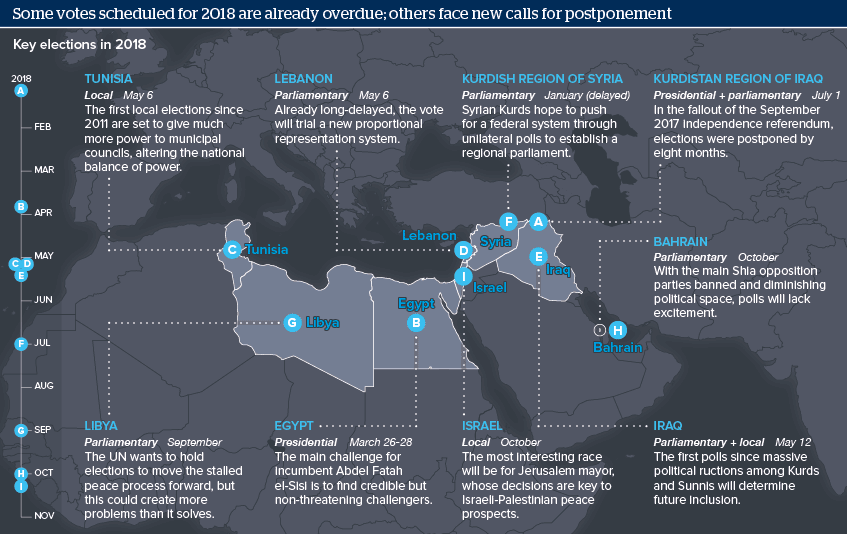Political variables may delay Middle Eastern elections
Polls in the Middle East and North Africa rarely transfer power, but are still important tools of political contestation
Source: Oxford Analytica
Outlook
Sunni groupings are demanding a delay in Iraqi elections until December, arguing many of their constituents are still displaced after the campaign against Islamic State. However, Prime Minister Haider al-Abadi, with US backing, insists the vote be held on time. Surprises are likely, as sectarian alliances shift and Tehran may take a hand.
In Iraq’s Kurdistan region, where the Barzani clan has governed for years both through and despite electoral processes, it is unlikely that much-postponed polls can bring any change. The Kurdish areas in Syria initially put off their long-awaited parliamentary elections scheduled for this month because of logistical issues; now a Turkish offensive raises doubts about the future of the region.
Impacts
- Lebanese parties will block all efforts to amend the hard-won electoral law, fearing another delay to overdue polls.
- Postponement is likely in Libya: elections without a settlement or agreed constitution might only complicate the conflict further.
- Turnout will be the best measure of legitimacy for Egyptian President Abdel Fatah el-Sisi’s re-election: it is likely to be depressed.
- The local elections in Tunisia could finally unlock much-needed regional development as decentralisation starts to work.
See also
- Islamic State will target Middle East elections - May 3, 2018
- Risk and Opportunities, 2018, Part 2 - Dec 28, 2017
- More graphic analysis
